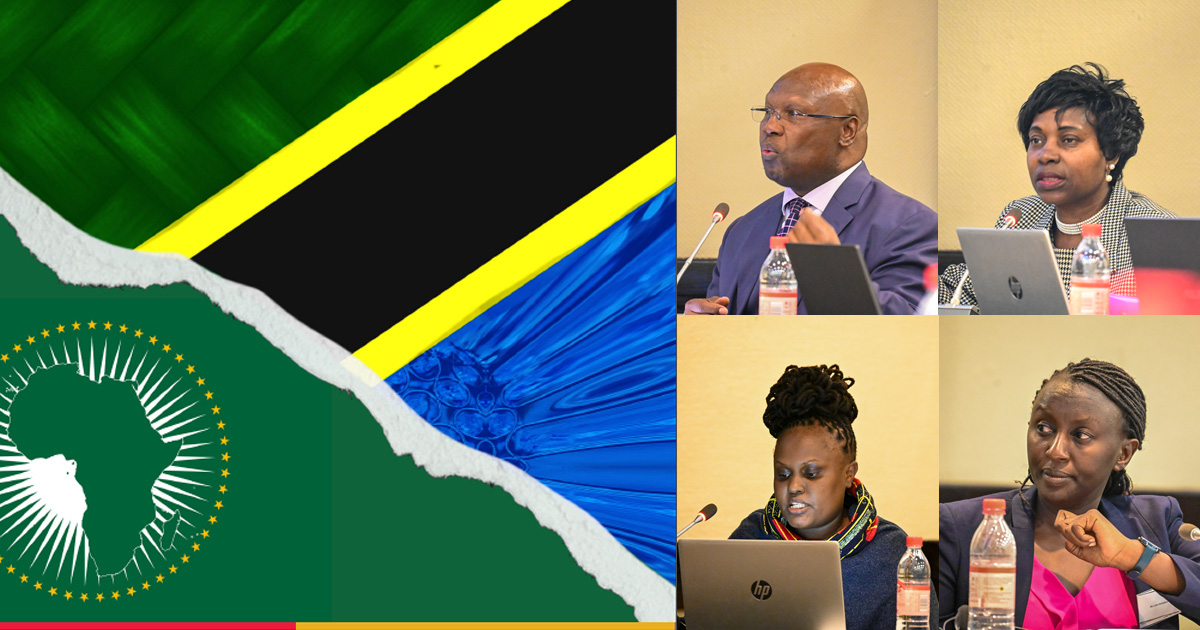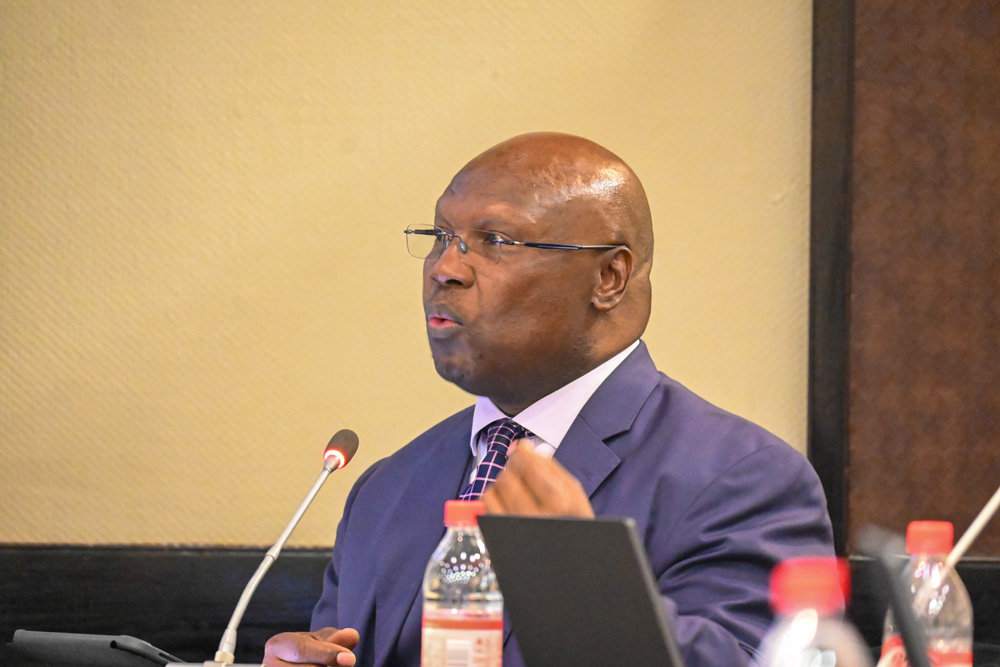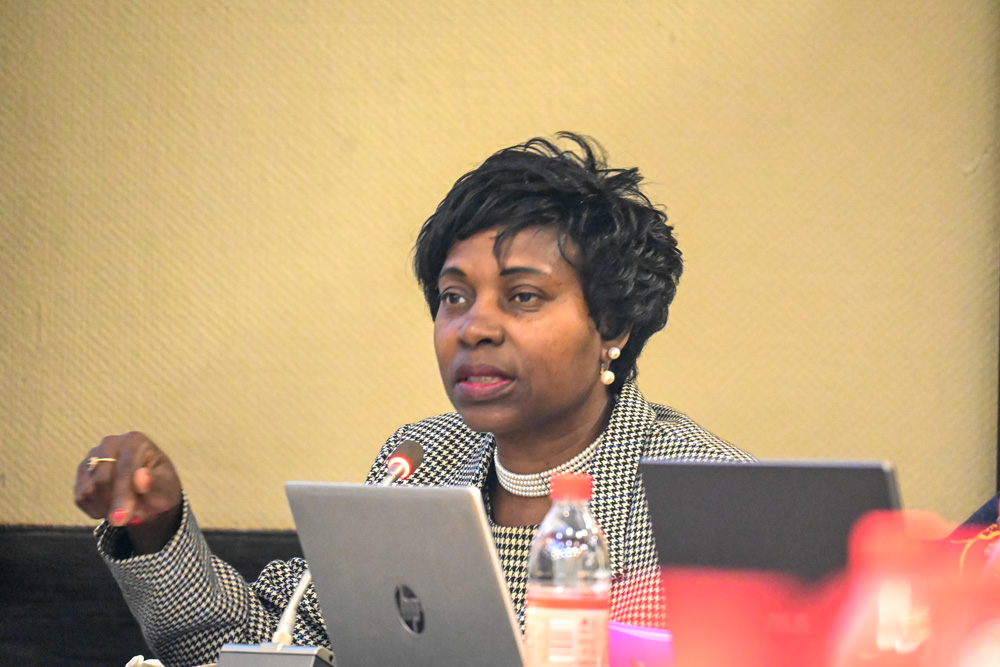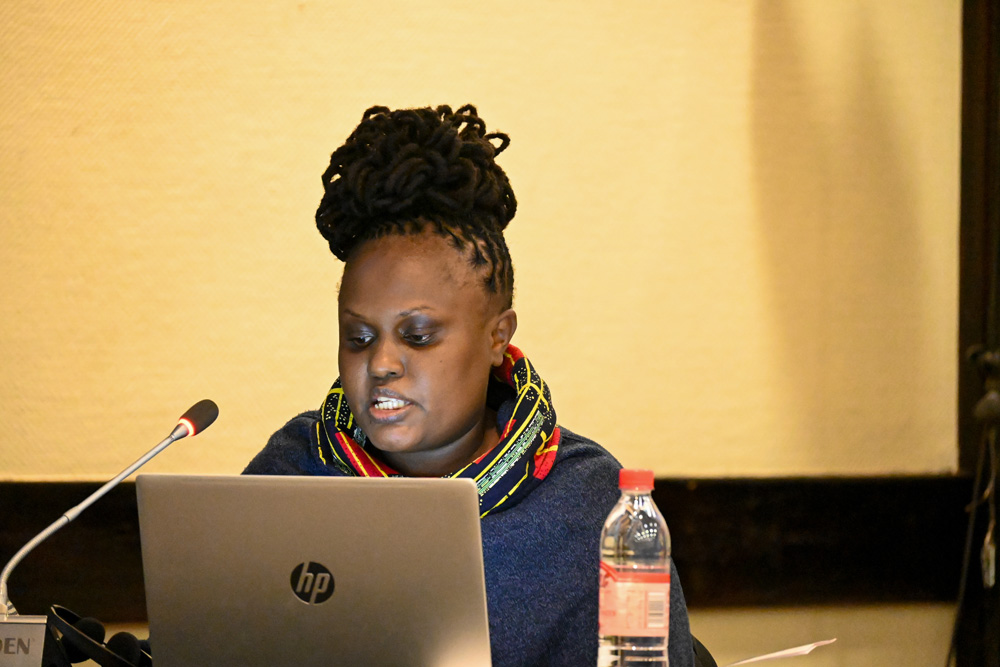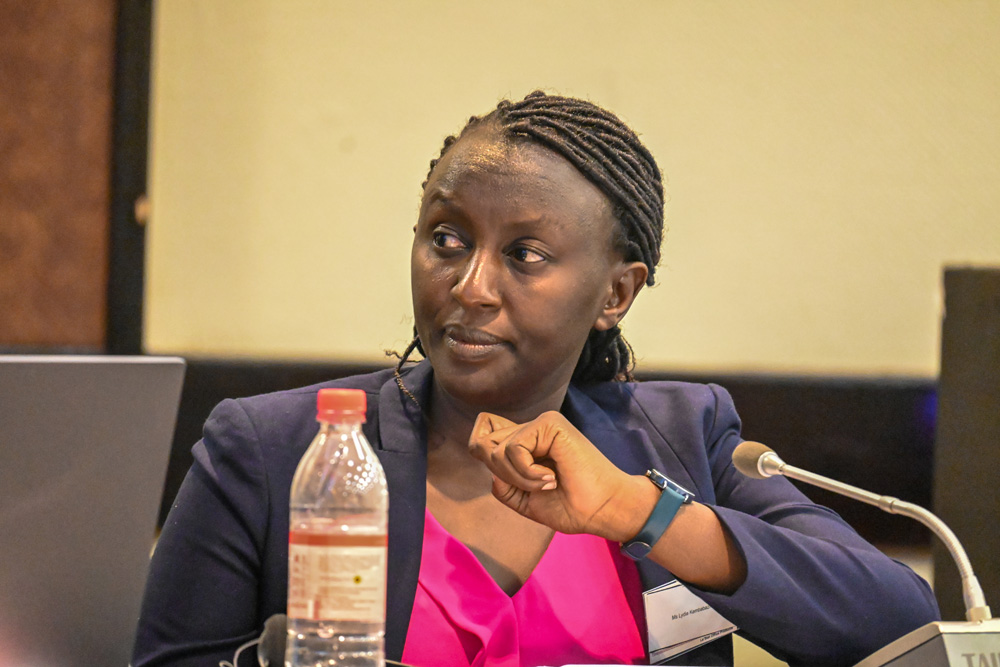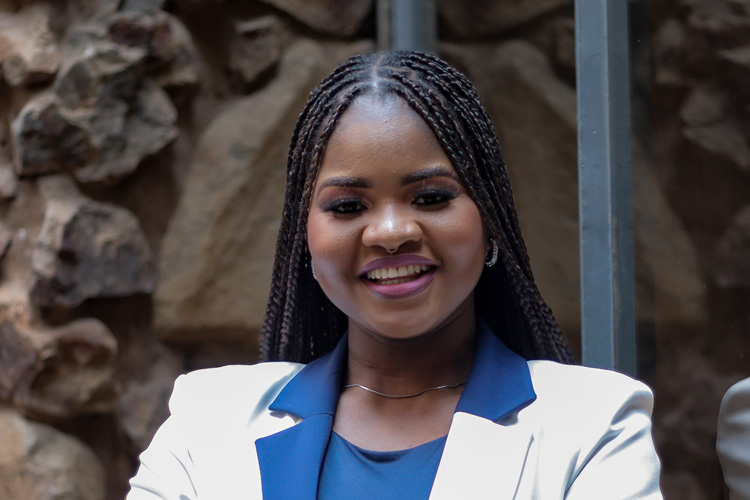On 15 September 2023, the Centre for Human Rights, Faculty of Law, University of Pretoria, held its 5th edition of the African human rights bodies case discussion series at Southern Sun Hotel, Pretoria. The African human rights bodies case discussion series is part of the Centre for Human Rights efforts to improve the implementation and impact of the jurisprudence of African human rights bodies by providing a platform for stakeholders to discuss and engage with critical aspects of decisions of African human rights bodies. The 5th edition focused on the decisions of the African Commission on Human and Peoples’ Rights (African Commission) in the cases of Justice Thomas S. Masuku v The Kingdom of Swaziland and Equality Now and Ethiopian Women Lawyers Association (EWLA) v the Federal Republic of Ethiopia.
The discussants in the case of Justice Thomas S. Masuku v The Kingdom of Swaziland were Justice Thomas Masuku (the Applicant in the case), Mrs Irene Mbengue (Senior Legal Officer at the African Commission) and Dr. Victor Ayeni (Senior Lecturer, Faculty of Law, Adekunle Ajasin University, Nigeria).
Speaking from the perspective of the Applicant, Justice Masuku emphasised the importance of amicable resolutions, particularly that the African Commission must encourage parties to settle their differences outside of formal channels to prevent protracted decision timelines, such as the nine-year wait for certain verdicts. Concurrently, he sought clarity on the African Commission’s compensation determination process. On her part, Mrs. Mbengue addressed several points on behalf of the African Commission. She acknowledged the delays in communication, attributing them to the African Commission's lack of human resources and the temporary cessation of communication from the complainant, which led to the submission being struck out before its relisting in 2017. Secondly, on the matter of costs, she stated that while a collaborative framework on legal assistance is being developed with the African committee of legal experts, the African Commission currently guides complainants in navigating their complaint processing. Dr. Ayeni commended the African Commission for its jurisprudential contributions in several areas. He acknowledged that the African Commission has made significant strides in the realm of striking out and relisting communications and commended the African Commission's stance on determining the 'reasonable period of time' when local remedies are not available for exhaustion. He however advised that the African Commission should temper justice with compassion, considering that delays in listing communications might not always be the fault of the complainant. Given that some Complainants may not have the opportunity to have their communications relisted, he suggested that the African Commission should institute a discretionary six-month period to strike out communications based on diligent prosecution.
The Equality Now and Ethiopian Women Lawyers Association v The Federal Republic of Ethiopia featured discussions from Hon. Dr. Litha Musyimi-Ogana (Commissioner of the African Commission), Ms. Deborah Nyokabi (Program Officer, Network of African National Human Rights Institutions) and Ms. Lydia Kembabazi (Human Rights Lawyer and the Advocacy Officer at the Institute for Human Rights and Development in Africa).
Ms Deborah discussed the case as it relates to enhanced protection for women and girls. She emphasised the broader impact of the case, including concerns over the prolonged duration of the case, discussions surrounding an amicable settlement, constraints faced by the complainant and her legal representatives, and noteworthy amendments to the criminal code of Ethiopia. Hon. Dr. Litha Ogana, speaking on behalf of the African Commission, stressed that merely ratifying women's rights protocols, like the Maputo Protocol, is inadequate due to prevalent sexism in African state legal systems. She further highlighted the challenges victims face in exhausting local remedies before reaching the African Commission, including issues like financial costs and physical abuse. She suggested the establishment of a reparations fund with interim contributions to compensate victims adequately. In her evaluation of the case, Ms. Kembabazi highlighted the African Commission’s missed opportunity to strengthen its jurisprudence on discrimination against women through a comparative analysis of violence against girls and boys. She however lauded the African Commission's actions against grievous practices like forced marriage and rape, and the contribution of the case in prompting the Ethiopian government to abolish harmful traditions and their focus on compensating non-material damages. She underscored the need for a dedicated individual to oversee state implementation to ensure continued adherence and progress.
The 5th edition of the African human rights bodies case discussion series is one of the activities of the Centre for Human Rights under its broader project of strengthening national, regional and continental human rights and legal accountability mechanisms which is funded by the Open Society Foundation. The Centre for Human Rights Litigation and Implementation Unit organised the hosting of the Case discussion series.
For more information, please contact:
Tel: +27 (0) 12 420 3151
foluso.adegalu@up.ac.za
Tel: +27 (0) 12 420 3151
zainab.olaitan@up.ac.za

